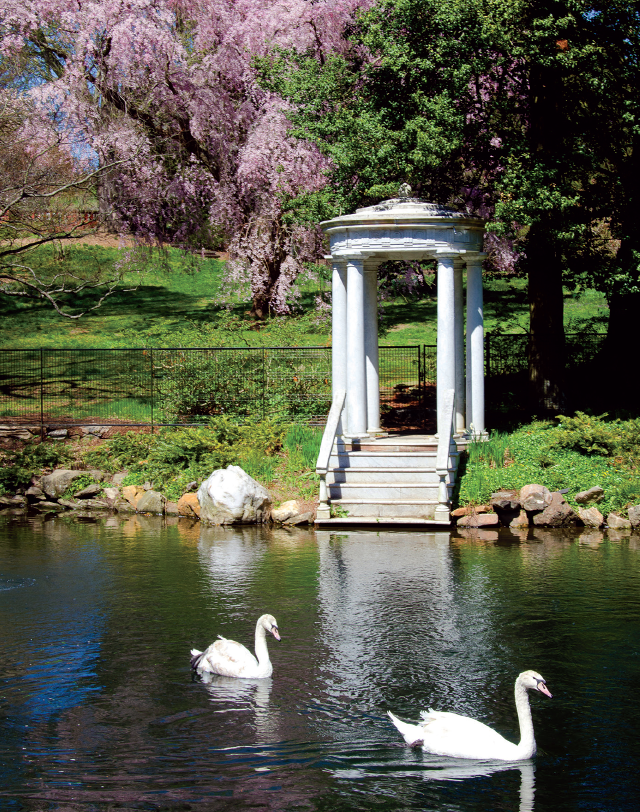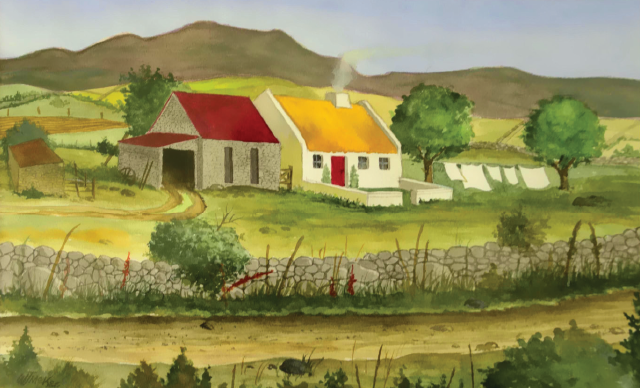(Photo above: William Cullina — executive director of the Morris Arboretum)
By Marita Krivda Poxon
The Morris Arboretum, a Victorian 92-acre landscaped, public garden replete with rare plants and many of the region’s oldest trees, is the jewel in the crown of all 35 public gardens in the greater Philadelphia region.
In July 2019, the Arboretum’s Board of Advisors selected the new F. Otto Haas Executive Director, William Cullina, to take over the leadership of this crown jewel succeeding Paul W. Meyer who ran the Arboretum for 43 years.

An intrepid New Englander, Cullina served as the Head Propagator at the New England Wild Flower Society/Native Plant Trust in Framingham, Massachusetts and recently as the CEO of the Coastal Maine Botanical Garden in Boothbay, Maine.
He developed a 20-year master plan for this 295-acre site, which made this public garden a Maine top tourist site drawing on average 200,000 visitors a year.
Cullina has always been drawn to Philadelphia coming often to attend meetings with his professional colleagues, who are members of the American Public Gardens Association headquartered in Kennett Square, PA.
Early in 2000, he visited the Morris Arboretum for the first time and was stunned by the beauty of this romantic landscape fill of majestic, heritage trees. Cullina was honored to be appointed to head this public garden. Of his appointment Cullina said: “It is truly a once-in-a- lifetime opportunity, and I am deeply grateful to the Board and University for selecting me as the next leader of this great institution.”
The fabled Morris Arboretum began in 1887 as Compton, the summer home of the Quaker brother and sister, John and Lydia Morris, who were heirs to the iron manufacturing firm I.P. Morris. As worthy stewards of the land surrounding Compton, they preserved their garden for future generations by giving it to the University of Pennsylvania in 1932.
Today it is listed on the National Register of Historic Places and is the official arboretum of the Commonwealth of Pennsylvania. To continue the Morris legacy and expand its educational outreach, Cullina has in development a visionary 20-year master plan for the arboretum’s growth. To help make this happen, Cullina works with the Board of Advisors and oversees 70 enthusiastic staff members as well as 250 dedicated volunteers.
William Cullina is very proud of his Irish roots and acquired Irish citizenship through his father. The family name Cullina was shortened 250 years ago in Ireland from Cullinaugh or Cullinan. In Irish, his surname means place of the holly, which is a very appropriate surname for a man whose grand office in Gates Hall overlooks the Morris Arboretum’s holly slope.

Around 20 years ago, he visited the small village of Irishtown, County Mayo where the Cullina homestead and farm had been located for centuries. He found the site but the family thatched cottage had been replaced by housing. Cullina owns a painting of this thatched cottage that was created from an old family photograph.
Cullina visited the local cemetery where he found many Cullina headstones dating back to the 19th century. While in Ireland, his admiration for the country included its damp climate of which he has said: “that kind of climate, that cool damp climate made it feel to me like home since I have always felt that I was a moss in a former life.”
The little villages were for him very much like small towns nearby Boothbay in Maine, where he lived with his wife Melissa and their three children. For him, towns in Maine and Ireland are very much alike and have friendly communities which gather together in local pubs regularly to talk about the events of the day.
His grandfather, Michael Cullina, emigrated from Irishtown around 1900 settling into a large Irish Catholic community in Hartford, Connecticut, where his brothers had settled before his arrival. For a brief time, he worked as a trolley conductor but soon used the carpentry skills brought over from Ireland to build houses.
His grandmother, Margaret Carroll, came from Lishdoonvarna, County Clare next to the Burren. She immigrated as a teenager to Hartford where she worked as a maid. In Hartford’s large Irish Catholic community, his grandparents met and married eventually moving to suburban West Hartford.
William Cullina and his wife Melissa Dow still maintain their home on Southport Island in Maine. Maine is in their blood with their oldest son even working as a lobsterman in the summer. He is currently a freshmen at the University of Pennsylvania. Melissa’s ancestry is Ulster-Scots. She has deep roots in Maine which go back to the early 1700s. In the late 19th century, her great-great grandfather served as a guide for Teddy Roosevelt in Northern Maine when the young Roosevelt was sent up into the Maine wilderness to learn how to hunt and fish. Cullina credits his wife’s ancestor with helping to start the American national parks movement through instilling a love of wilderness in Roosevelt.
The Morris Arboretum had scheduled Irish Day again this year on Sunday May 3rd However, all events have been postponed until further notice.
Morris Arboretum
100 East Northwestern Avenue
Philadelphia, PA 19118
Phone: 215-247-5777
General Inquiries: info@morrisarboretum.org
Admission: $20 Adults; $18 Seniors; $10 Youth

